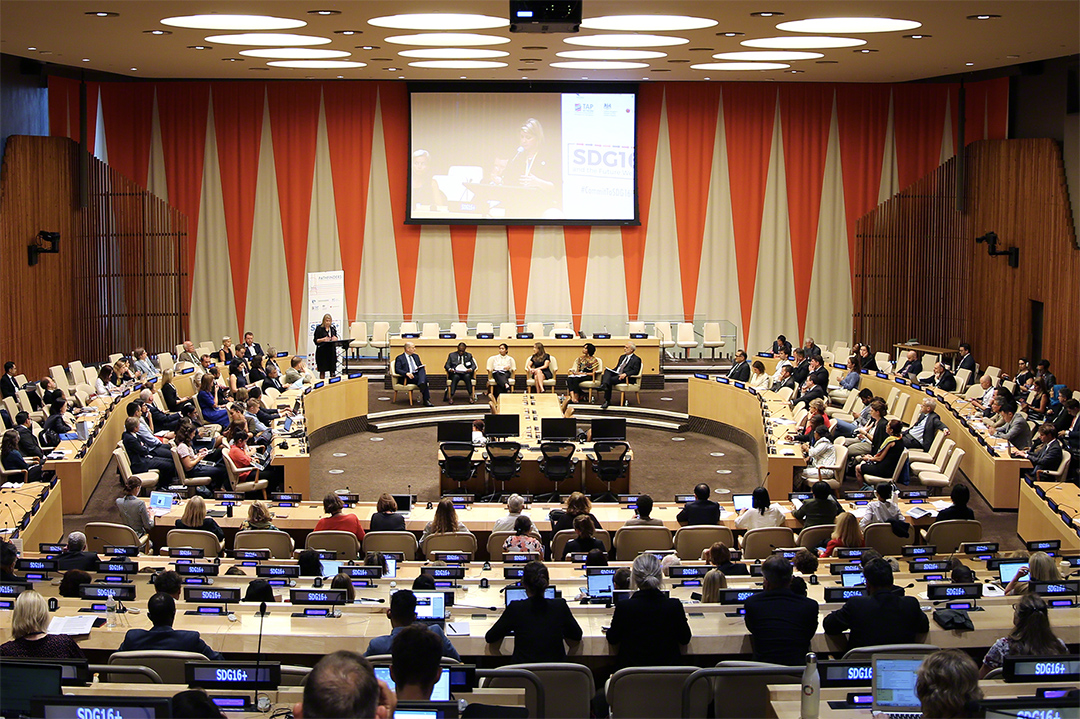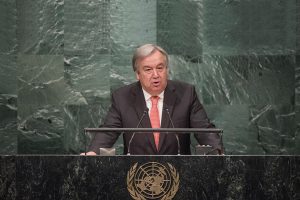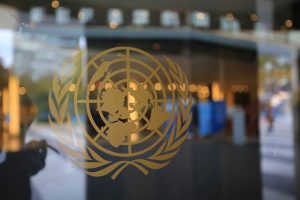Member States, UN agencies, experts, and civil society organizations (CSOs) gathered in New York for back-to-back meetings of the Partnership Forum of the UN Economic and Social Council (ECOSOC) and the ECOSOC Coordination Segment, to consider ways to facilitate the effective delivery of sustainable, resilient, and innovative solutions to reinforce the 2030 Agenda for Sustainable Development and eradicate poverty in times of multiple crises.
The ECOSOC Partnership Forum convened on 30 January. In their deliberations, participants paid special attention to the five Goals to be reviewed at the 2024 session of the UN High-level Political Forum on Sustainable Development (HLPF) – SDGs 1 (no poverty), 2 (zero hunger), 13 (climate action), 16 (peace, justice and strong institutions), and 17 (partnerships for the Goals).
Keynote speaker Mariana Mazzucato, Professor of Economics of Innovation and Public Value at University College London, delivered video remarks, highlighting that symbiotic public-private partnerships (PPPs) that enabled a moon landing and gave us camera phones, foil blankets, and baby formula are lacking with the SDGs. She underscored the need to put the Goals at the center of an outcomes-oriented economy.
ECOSOC President Paula Narváez Ojeda said the 2023 SDG Summit was “a critical moment in our pursuit of achieving sustainable development,” stressing the Council’s vital role in following up on the Summit’s political declaration.
Delivering remarks on behalf of Deputy Secretary-General Amina Mohammed, Under Secretary-General for Economic and Social Affairs Li Junhua, UN Department of Economic and Social Affairs (DESA), said transitions in the areas of food systems, energy, digitalization, education, climate change and the environment, and decent jobs and social protection can have a catalytic effect across all SDGs.
Representatives of Member States, CSOs, and UN entities then shared perspectives on ways to strengthen partnerships.
In conclusion, Narváez Ojeda welcomed the Partnership Forum’s multi-stakeholder and participatory discussions that, she said, can “shine the spotlight on innovative solutions for addressing many of today’s most pressing challenges.” She indicated the Forum’s meeting would feed directly into the Coordination Segment, which took place from 31 January to 1 February.
Opening the Coordination Segment, ECOSOC Vice President Akan Rakhmetullin underscored the need for an integrated approach to foster prosperity while addressing the impacts of climate change. He called for breaking silos and using interlinkages to create multiplier effects to achieve the 2030 Agenda.
Narváez Ojeda recalled the Partnership Forum’s key takeaway – that effective partnerships play a pivotal role in the pursuit of sustainable development by helping pool resources and expertise and ensuring efforts translate into tangible impacts on the ground. She said the success of such partnerships depends on respect for country ownership and local context as well as stringent accountability measures.
Speaking on behalf of UN Secretary-General António Guterres, Courtenay Rattray, Chef de Cabinet, warned of geopolitical mistrust that is blocking effective solutions. He said the global financial system is outdated, dysfunctional, and unfair, urging the Council to “help deliver meaningful change and justice for all countries and peoples.”
The two-day segment featured panel discussions on tackling inequality amidst multiple crises, building resilient food systems, advancing climate action through sustainable solutions, and creating effective institutions to achieve the SDGs. Closing the digital divide and linking the 2023 SDG Summit to the Summit of Future were also explored.
Closing out the segment, Rakhmetullin summarized the discussions, highlighting recommendations for coordination and the creation of multiplier effects. He stressed the need for climate action, gender-responsive policies, and the restoration of social and political trust. He also said mature green technologies such as solar can provide straightforward solutions, while emerging technologies such as artificial intelligence (AI) and blockchain can offer innovative solutions.




